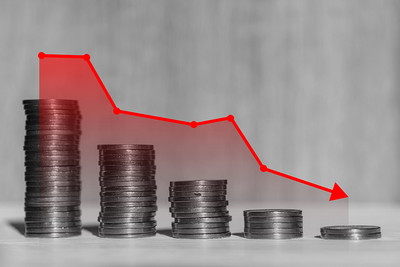 As if things couldn’t get bad enough for Camelot, they are now nursing a 3% drop in lottery ticket sales year-on-year – costing the firm around £283 million.
As if things couldn’t get bad enough for Camelot, they are now nursing a 3% drop in lottery ticket sales year-on-year – costing the firm around £283 million.
The National Lottery operator, who have lost the licence to run the UK draws as of 2024, is now embroiled in a legal battle against the Gambling Commission – the regulator who opted to name the Allwyn Group, Camelot’s competitor, as their preferred option when the existing licence comes to an end.
While the firm still made a handsome £8.1 billion in revenue for the financial year ending in March, dwindling sales – including a 7% downturn in their much-promoted instant win games – have shaved considerable value from Camelot.
The firm’s chief executive, Nigel Railton, blamed a ‘challenging and changing external environment’ for their below-par figures, and admitted that ‘growing economic uncertainty’ could pose further problems as some lottery players tighten their belts during the squeeze that is hitting many households around the UK.
“In the year ahead, we’ll continue to invest and innovate to respond to the changing consumer environment, because we all care deeply about the future of The National Lottery – and the vital difference that it continues to make to the whole of the UK,” Railton said.
Overall, ticket sales fell year-on-year by £43 million – a situation partly attributed to there being fewer big money rollover jackpots. There were just 15 rollovers of £100 million or more during the accounting period, as opposed to 22 during 2020/21. Lower footfall in high street shops in recent years is also thought to be another mitigating factor.
Making a Point

One of the myriad reasons why the lottery licence was taken away from Camelot was their over-reliance on retail sales, with Allwyn promising to push online sales and reach a different demographic with their marketing efforts – it’s noteworthy that 60% of Camelot’s ticket sales in 2021/22 still came via the high street.
Allwyn, who already run a number of national lottery draws across Europe, have also pledged to return ticket prices to their original £1 per line price, while promising to donate a greater amount to good causes.
On that note, Camelot donated £3.1 billion to charity partners during the financial year – up £24 million on the previous period. Their charitable donations had, reportedly, been another reason why Allwyn was favoured during the licencing competition process.
“Camelot has once again raised a record amount for good causes from ticket sales, and has also ensured that a record-equalling £3.1bn was once again generated for society through good causes, lottery duty and retailer commission, at a time when other funding sources are being squeezed,” Railton said.
Despite all that, the company will have to press ahead with their court action if they are to see the Commission’s original decision overturned. It has already faced the regulator in the High Court, arguing that they shouldn’t have used a discounted ‘risk factor’ during the scoring process. They claimed that it gave an edge to Allwyn’s ambitious but, in their words, riskier business plan.
